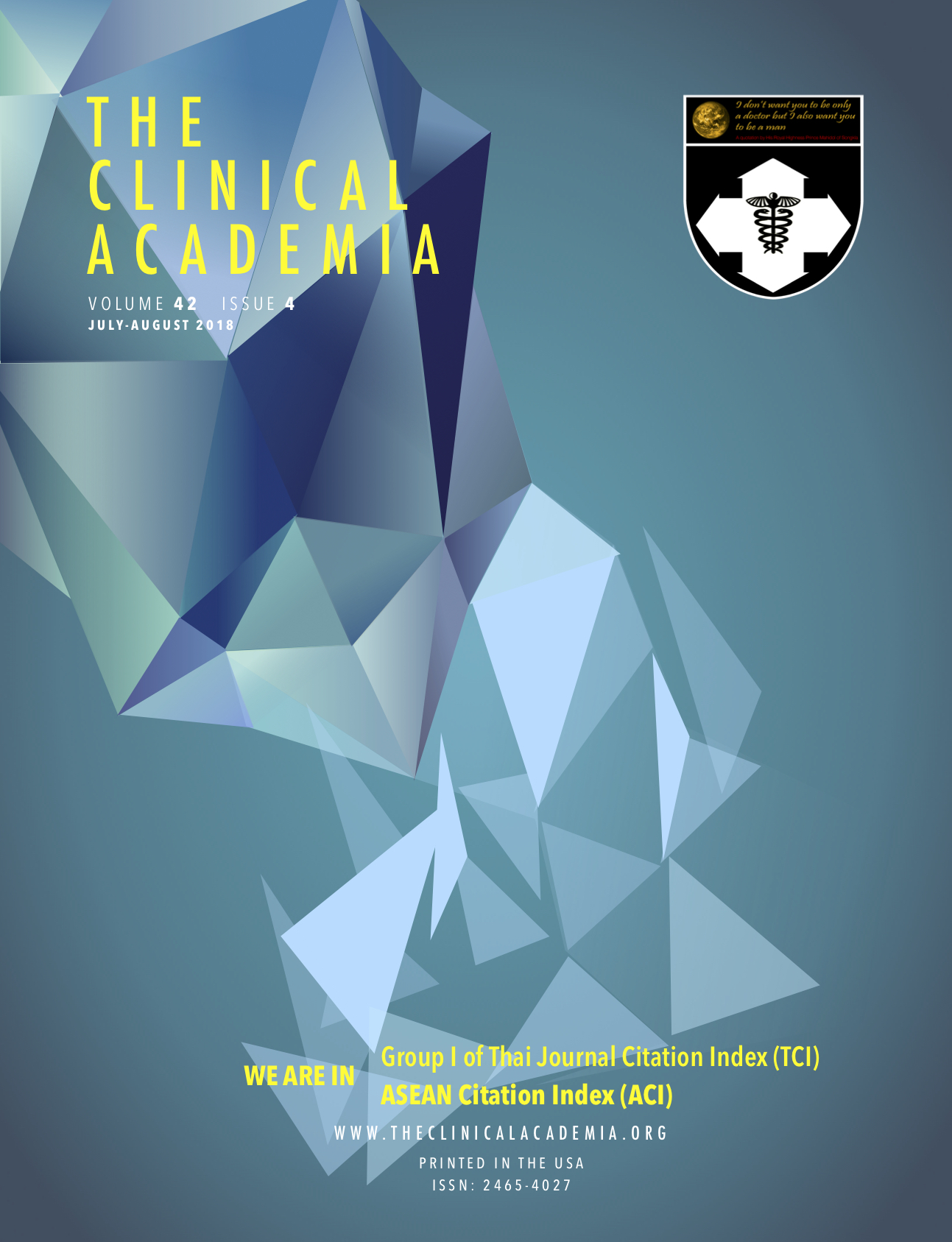Uncontrolled blood pressure and acute intracerebral hemorrhage in patients with hypertension
บทคัดย่อ
OBJECTIVE
To identify the association between the blood pressure (BP) control and the first episode of intracerebral hemorrhage (ICH) in patients with hypertension.
METHODS
We conducted a case-control study among patients with hypertension to identify the risk of acute ICH in patients with uncontrolled hypertension. The cases were included if there were admitted at Khon Kaen Hospital (KKH) with acute ICH with underlying of hypertension from January 2013 to September 2015. The controls were matched by age and gender in the ratio 1:2. BP in each patient was recorded in relation to mean of the last 3 recorded in the patient records during the year before the in the admission date of the cases or visit date of the matched controls. Classification of blood pressure control was based on the Joint National Committee on Prevention, Detection, Evaluation, and Treatment of High Blood Pressure 8 criteria (JNC8).
RESULTS
A total of 225 medical records were included and reviewed (75 patients were the cases and 150 patients were the controls). Patients with uncontrolled hypertension increased the risk of the first episode of ICH were classified regarding JNC8; comparing to those with controlled BP, the patients with hypertension stage 2 were associated with highest rate of intracerebral hemorrhage (adjusted odds ratio (AOR), 4.20; 95% confidence interval (CI), 1.82 to 9.79); the patients with hypertension stage 1 who had underlying diabetes mellitus or chronic kidney disease and the age younger than 60 year-old were also associated with higher rate of intracerebral hemorrhage (AOR, 2.96; 95% CI, 1.33 to 6.57) as well as those who were older than 60 (AOR, 2.16; 95% CI, 0.56 to 8.33).
CONCLUSION
Our findings suggested that in patients with hypertension, inadequate BP control could increase the risk of ICH especially BP in the range of stage 2 hypertension. Randomized controlled trials stating the risks and benefits of tight BP control are suitable to generate high-quality data that can guide recommendation about BP control in patients with hypertension.



